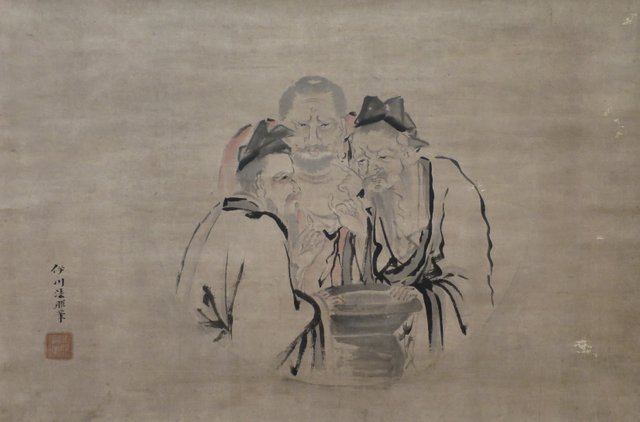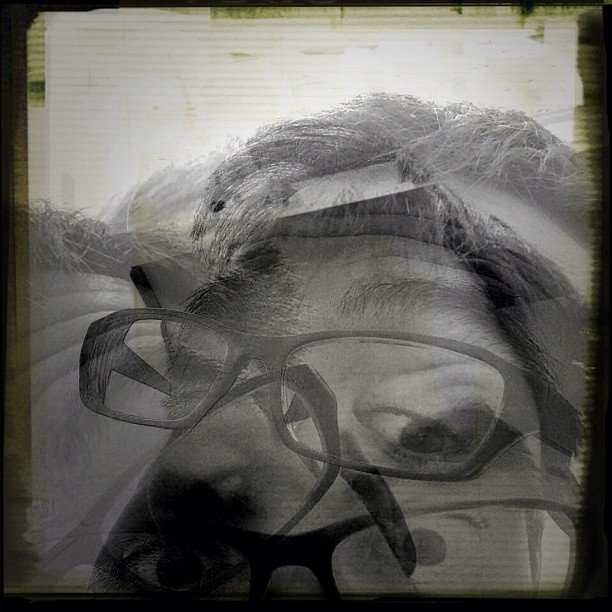A Taoist Tale

Li Fu-yen told a story about Tu Tzu-chun, who lived from A.D. 558 to 618, during the Northern Chou and Sui dynasties. Tu’s examiner was a Taoist monk, who made him rich twice, and twice Tu squandered his fortune though it took him two lifetimes to do so. The third time the Taoist gave him money, he bought a thousand li of good land, plowed it himself, seeded it, built houses, roads and bridges, then welcomed widows and orphans to live on it. With the left-over money, he found a husband for each spinster and a wife for every bachelor in his family, and also paid for the weddings. When he met the Taoist again, he said, “I’ve used up all your money on the unfortunates I’ve come across.”
“You’ll have to repay me by working for me,” said the Taoist monk. “I need your help on an important task.” He gave Tu three white pills. “Swallow these,” he said, pouring him a cup of wine. “All that you’ll see and feel will be illusions. No matter what happens, don’t speak; don’t scream. Remember the saying ‘Hide your broken arms in your sleeves.’”
“How easy,” said Tu as he swallowed the pills in three gulps of wine. “Why should I scream if I now they’re illusions?”
Level by level he descended into the nine hells. At first he saw oxheads, horsefaces, and the heads of generals decapitated in war. Illusions. Only illusions, harmless. He laughed at the heads. He had seen heads before. Soon fewer heads whizzed through the dark until he saw no more of them.
Suddenly his wife was being tortured. Demons were cutting her up into pieces starting with her toes. He heard her scream; he heard her bones crack. He reminded himself that she was an illusion. Illusion, he thought. She was ground into bloodmeal.
Then the tortures on his own body began. Demons poured bronze down his throat and beat him with iron clubs and chains. They mortar-and-pestled and packed him into a pill.
He had to walk over mountains of knives and through fields of knives and forests of swords. he was killed, his head chopped off, rolling into other people’s nightmares.
He heard gods and goddesses talking about him, “This man is too wicked to be reborn a man. Let him be born a woman.” He saw the entrance of a black tunnel and felt tired. He would have to squeeze his head and shoulders down into that enclosure and travel a long distance. He pushed head first through the entrance, only the beginning. A god kicked him in the butt to give him a move on. Sometimes stuck in the tunnel, sometimes shooting helplessly through it, he emerged again into light with man urgent things to do, many messages to deliver, but his hands were useless baby’s hands, his legs wobbly baby’s legs, his voice a wordless baby’s cries. Years had to pass before he could regain adult powers; he howled as he began to forget the cosmos, his attention taken up with mastering how to crawl, how to stand, how to walk, how to control his bowel movements.
He discovered that he had been reborn a deaf-mute female named Tu. When she became a woman, her parents married her to a man named Lu, who at first did not mind. “Why does she need to talk,” said Lu, “to be a good wife? Let her set an example for women.” They had a child. But years later, Lu tired of Tu’s dumbness. “You’re just being stubborn,” he said, and lifted their child by the feet. “Talk, or I’ll dash its head against the rocks.” The poor mother held her hand to her mouth. Lu swung the child and broke its head against the wall.
Tu shouted out, “Oh! Oh!”—and he was back with the Taoist, who sadly told him that at the moment when he had said, “Oh! Oh!” the Taoist was about to complete the last step in making the elixir for immortality. Now that Tu had broken his silence, the formula was spoiled, no immortality for the human race. “You overcame joy and sorrow, anger, fear, and evil desire, but not love,” said the Taoist, and went on his way.
Longtime translator of many Chinese religious classics, Brian Browne Walker, often posted this story on his many social media accounts. I asked him about it once but he couldn’t tell me where it came from. I have long assumed it comes from one of the old Chinese folk tales he translated for a living.
❦
 |
David LaSpina is an American photographer lost in Japan, trying to capture the beauty of this country one photo at a time. More? |
That’s a good one. I’d love to know what the original text was.
Such an interesting Chinese Taoist story, but I have never seen its Chinese version, too.
I guess maybe it is from 聊斋志异 (Strange stories from a lonely studio) written by 蒲松龄 Pu Songling in Qing dynasty. Pu Songling is also called "Ghost writter", he was good at writting the love and reincarnated story.
Maybe I am wrong, because I really don't know.
Yeah, "You overcame joy and sorrow, anger, fear, and evil desire, but not love".